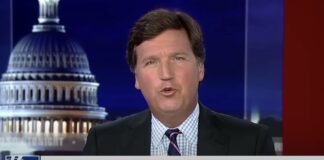OPINION | This article contains commentary that reflects the author's opinion.
Former Housing and Urban Development Secretary Julián Castro announced in a video on Thursday morning that he is dropping from the Democratic presidential primary.
In a video, the Obama-era housing secretary and former mayor of San Antonio said he “determined that it simply isn’t our time” due to “the circumstances of this campaign season.”
“I’m so proud of the campaign we’ve run together,” Castro continued in the video. We’ve shaped the conversation on so many important issues in this race, stood up for the most vulnerable people and given a voice to those who are often forgotten.”
Former U.S. Housing Secretary Julian Castro tweets that he will be suspending his 2020 Democratic presidential campaign pic.twitter.com/d6tFt5s7Ab
— Reuters Politics (@ReutersPolitics) January 2, 2020
“It’s with profound gratitude to all of our supporters that I suspend my campaign for president today. I’m so proud of everything we’ve accomplished together,” Castro said in a tweet alongside the video.
“I’m going to keep fighting for an America where everyone counts—I hope you’ll join me in that fight,” he added.
It’s with profound gratitude to all of our supporters that I suspend my campaign for president today.
I’m so proud of everything we’ve accomplished together. I’m going to keep fighting for an America where everyone counts—I hope you’ll join me in that fight. pic.twitter.com/jXQLJa3AdC
— Julián Castro (@JulianCastro) January 2, 2020
Politico reports Castro started his campaign for the presidency last January “but struggled to gain traction” in what quickly became a crowded Democratic primary.
“His only notable congressional endorsements came from his brother, campaign chairman and Congressional Hispanic Caucus Chairman Joaquin Castro, as well as freshman Texas Rep. Colin Allred, who worked for Castro at HUD and received early backing from Castro during his 2018 race,” the report adds.
And:
Castro often distinguished himself as the “first” candidate and sought to move the field left on a host of issues — including by visiting Flint, Mich., and Puerto Rico on the trail; releasing policies on immigration, indigenous communities and lead exposure; and supporting the impeachment of President Donald Trump. He also made waves by calling for the decriminalization of illegal border crossings, a position he was later followed on by some others in the field. But Castro rarely received attention for jumping out in front.
He grew his small operation — for a time, his communications shop was run solely by a senior aide — into a campaign that qualified for four nationally televised debates, and he outlasted senators, congressmen and current and former governors. But he was unable to seriously compete with the top tier of candidates, some of whom began the race with higher name identification, built-out email lists and well-stocked campaign treasuries from past elections.





